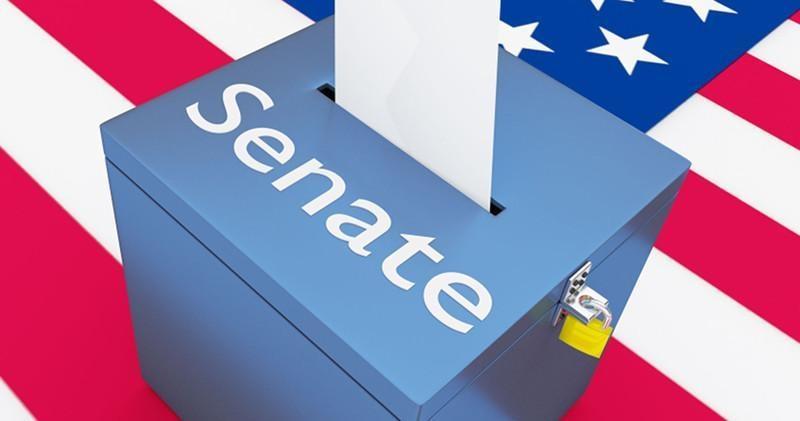
Republicans in Washington are working overtime to make sure Roy Moore isn’t the party’s Senate nominee again. But even though it might get uncomfortable for the GOP, Moore shouldn’t be dismissed in the primary or general elections.
Republican Richard Shelby, Alabama’s senior senator, got ahead of Moore’s Thursday Senate announcement, making his own declaration that he would not support the twice-ousted state Supreme Court justice if he chose to run again. That’s no surprise, considering Shelby didn’t vote for Moore in the 2017 special election to fill Jeff Sessions’ seat.
But while some Republicans walked away from Moore a couple years ago, this time around, if Republicans lose a Senate race in Alabama, Sen. Mitch McConnell could also lose his majority. Republicans can distance themselves from Moore in the primary and even the primary runoff, but the party will be due for some serious soul searching in the event that Moore becomes the GOP nominee to take on Democratic Sen. Doug Jones.
To avoid that headache, Republicans have adopted the credo “anybody but Roy Moore,” according to a Republican strategist, arguing that Moore will face increased resistance from Republicans in Alabama and in Washington, DC. Two other Republican strategists agreed that Moore could still be strong in a multi-candidate field, meaning he’s positioned to progress to the runoff, but that his low ceiling among Alabama Republicans will likely prevent him from winning a one-on-one matchup.
Even if Republicans are headed toward a crowded GOP primary next year, the nominee eventually has to surpass the 50-percent mark. Moore received a plurality of the vote in the 2017 primary with 39 percent — against appointed-Sen. Luther Strange (33 percent) and Rep. Mo Brooks (20 percent). One month later, Moore defeated Strange in the primary runoff, 55-45 percent.
While the circumstances surrounding his nomination in 2017 aren’t easily replicable, Moore’s win in the primary wasn’t a fluke either. He leveraged his core supporters and tapped into anti-establishment fervor.
Moore’s strength was an unwavering base, which showed up to support him in 2017 when other voters were less excited about the alternative: Strange, who was perceived to be part of the political establishment after he was appointed to the Senate by scandal-plagued Republican Gov. Robert Bentley. Miscommunication between President Donald Trump and McConnell also hurt Strange, who received support from the majority leader and his aligned super PAC, according to one Republican.
But even with a firm base of supporters, Moore has lost two statewide primary races before, when he ran for governor in 2006 and 2010. And this time around, Moore won’t have support from Senate Conservatives Fund, which endorsed him in the special election primary runoff but is supporting state Rep. Arnold Mooney in the 2020 race.
Ahead of the general election, Moore was already lagging in fundraising in the Senate special election when a report from the...

